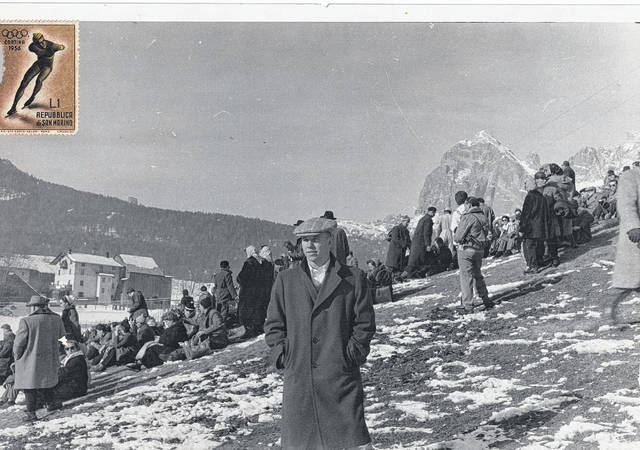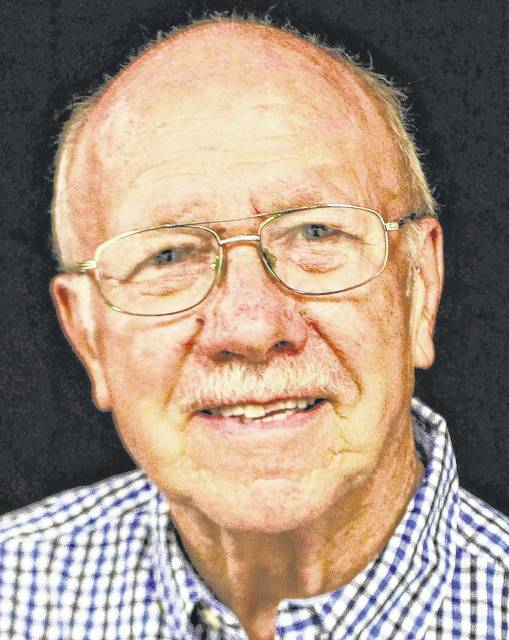

In the winter of 1956 I found myself in the Dolomite Mountains in Italy. The occasion was the 1956 Winter Olympics at the city of Cortina d’ampezzo in the northeast of Italy.
I had no idea the Olympics was even going on – two friends invited me and I accepted. It was another experience I had not anticipated, but like the others it was amazing.
It all started when, after very mediocre experiences at two colleges, I decided I needed a change – and also some financial support if I intended to finish college. The financial help came via the government program for ex-military people referred to as the GI Bill.
As I remember, it paid enough, with some part-time work, to go to college without adding to one’s debt. I did take advantage of this excellent program and attended many colleges, universities and graduate schools. I graduated from college in Mexico City and completed my schooling with a Ph.D. from Ohio State.
Although my attitude toward the military and war has evolved since then, I had no issues with what I was doing. It was the Cold War and it provided me with an unusual and what came to be a most beneficial experience.
I actually volunteered for the draft – they simply moved my name up on the list of potential draftees and I was in the U.S. Army! I spent eight weeks at Fort Leonard Wood in Missouri and another eight weeks in Fort Dix, New Jersey.
I was placed with a somewhat elite group of men, mostly from the east of the U.S. and ended up in a Headquarters Company in Goppingen, Germany. Instead of living in tents some 11 months of the year, we spent about one month doing so – we were responsible for protecting the Commanding General and his entourage. The camp had served as a German military base during WWII, but was referred to as Cook Barracks, part of the Army headquartered in Stuttgart.
Not only did I have relatively a soft assignment, but the men I was stationed with were well educated and very interesting. I was from a moderately strong Evangelical family and most of those I lived with in the military were Catholic and Jewish. They were mostly college graduates and there was even one lawyer.
A few of them drank too much on the weekends, but I recall no fights, and disagreements were rare. We were also able to take leaves at about any time we wished and the company commander was strange, but tolerable. We thought he viewed himself as General Patton!
Aside from my short visit to the Winter Olympics in Italy — which also took me to Austria, Switzerland and Greece — I took several other trips which resulted in visiting some dozen European countries. Most were with a friend or so, but I also traveled alone.
In the mid-1950s my experience was that U.S. military men were appreciated and treated well. The German mark was weak and the U.S. dollar went a very long way. As I remember the exchange rate was four marks to the dollar and prices were very cheap.
Many cities were still recovering from the war and the closer one traveled to the border of East Germany, the greater the destruction.
The trip to the Winter Olympics was one of the highlights of my trip to Europe, but simply visiting historic cities like London, Paris, Rome and Athens was indescribable. Special things like visiting the first concentration camp erected by the Nazis at Dachau near Munich, Germany, kissing the Blarney Stone in Ireland, visiting the largest-ever showing of the paintings of Rembrandt at the Rijksmuseum in Amsterdam, visiting Monte Carlo on the Mediterranean coast, viewing the leaning tower of Pizza, etc. were experiences of a lifetime.
What I took away from my year-and-a-half experience was an interest and appreciation for the world in which we live. My travels have continued — some 40 countries now — and my desire to share the experiences has led to 20 or so trips with students and local people to Mexico City, three trips to the U.S.-Mexico border with faculty and students, and an eight-week study program with 10 students to Nicaragua and Costa Rica.
I still work at Wilmington College encouraging and supporting students who spend time abroad. Although the international atmosphere is changing, I can’t think of anything that would broaden the understanding of young people more than exposure to other lands and cultures.
It seems Pollyannaish to hope that someday such experiences will be available to our youth and that at least two years of college could be free and travel more accessible.
They could start their lives with less debt and potentially a greater appreciation for other cultures, and for their own.
Neil Snarr is Professor Emeritus at Wilmington College.



